Master Website Branding: Essentials, Creation Guide & Top Examples

A website serves as the central hub for your brand's online presence. Website branding goes beyond mere aesthetics; it embodies the essence of your brand, communicating your values, personality, and the unique proposition you offer to visitors. Through strategic branding and website design, businesses can create a memorable and impactful online presence. This blog explores the essentials of website branding, guiding you through the process of establishing your brand identity online and showcasing examples of exceptional website branding.
What is Website Branding - The Essentials
Website branding encompasses the strategic integration of branding and website design, aiming to create a cohesive and memorable online presence that reflects the essence and values of a brand. It involves careful planning and execution, ensuring that every element of the website, from its layout to its content, aligns with the brand's identity. This synergy between website design and branding is crucial for establishing a strong, recognizable brand online, influencing how visitors perceive and interact with the site.
To achieve consistency and clarity in conveying the brand's message, adhering to website branding guidelines is essential. These guidelines serve as a roadmap for creating a visually appealing and functionally effective website, guiding decisions related to colors, typography, imagery, and overall aesthetic. By following these principles, businesses can ensure that their website effectively communicates their brand's ethos, setting the foundation for a compelling digital brand experience.
How to Design A Branded Website with Appy Pie Website Builder?
Building a professional website with Appy Pie Website is a straightforward process that can be completed in just a few simple steps:
Step 1: Signup/Login: Visit the App Pie Website Builder page. Select the ‘Join’ option to create an account. Hereafter, you will be directed to the login window. You can sign up using your Gmail account directly. If you already have an account, then simply log in with your credentials.
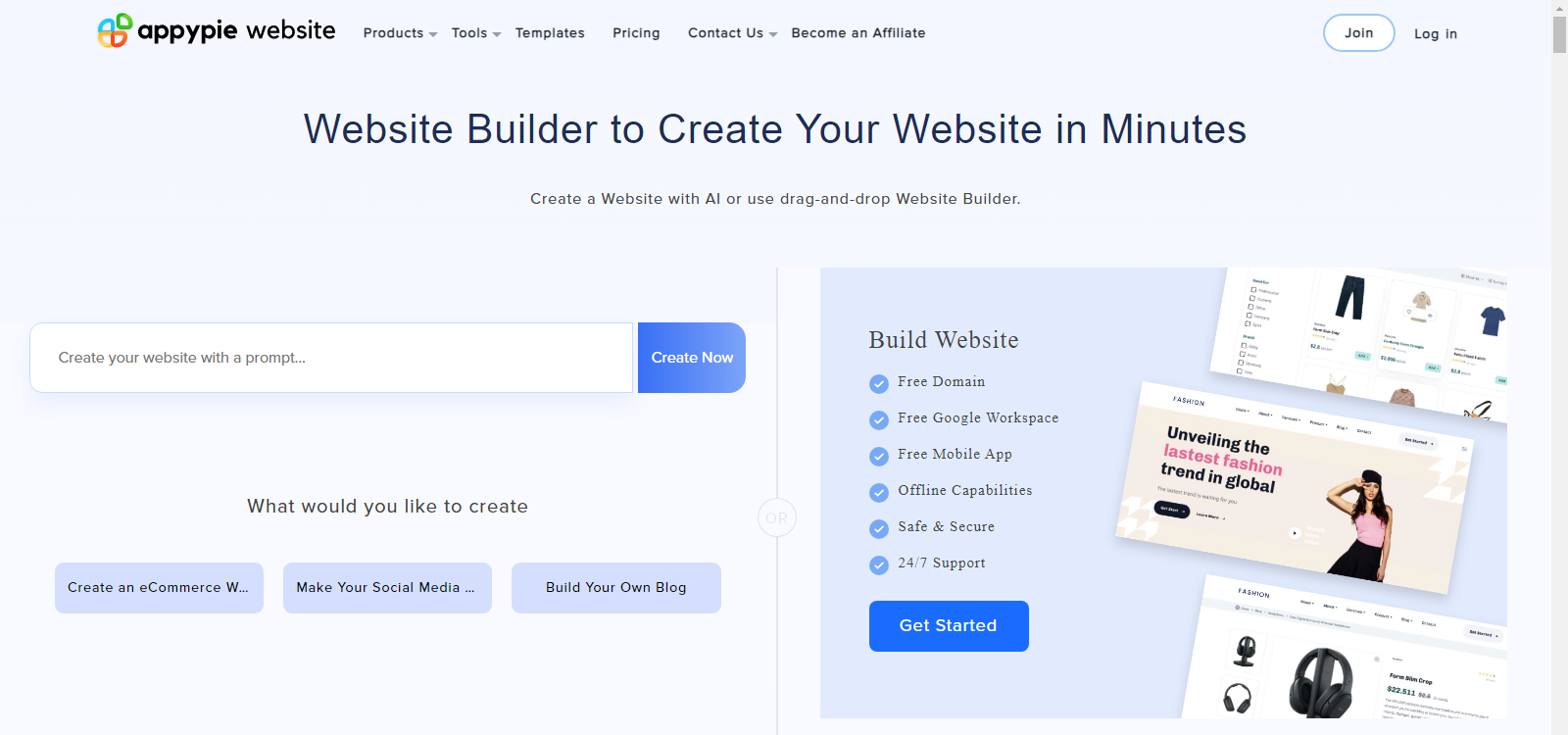
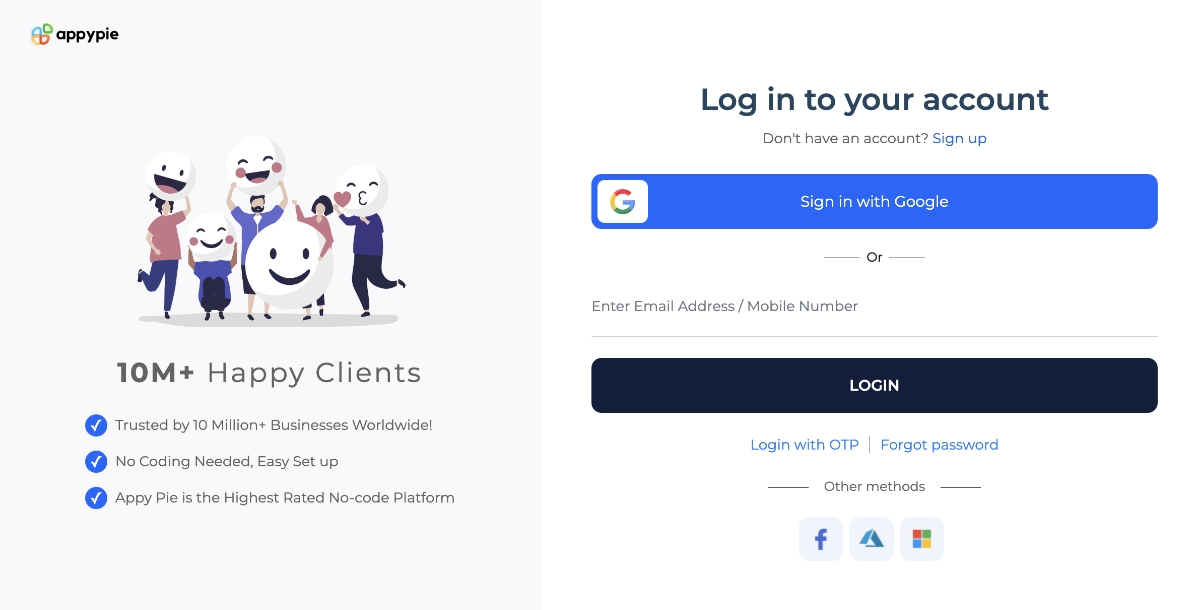
Step 2: Create your Business Name: In the next step, you need to enter the name of your business and click ‘Continue’. Also, you can change the name in future as per your needs.
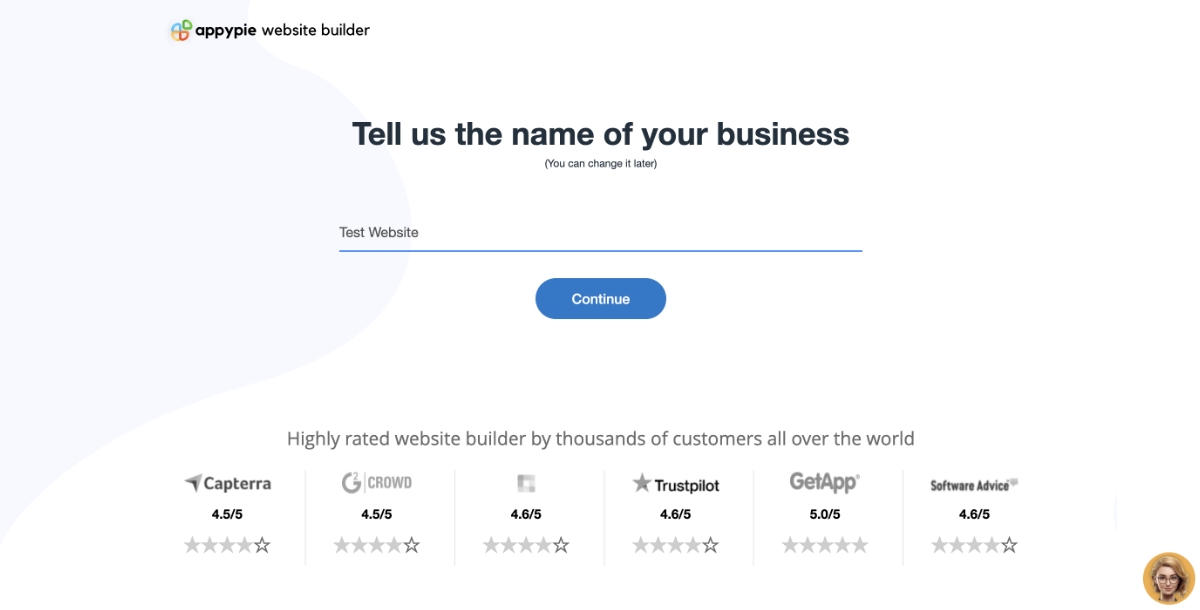
Step 3: Choose your Business Category: Once you have entered your business name, you can now select the type of business you want to work on from the ones listed on the page. For example: Business.
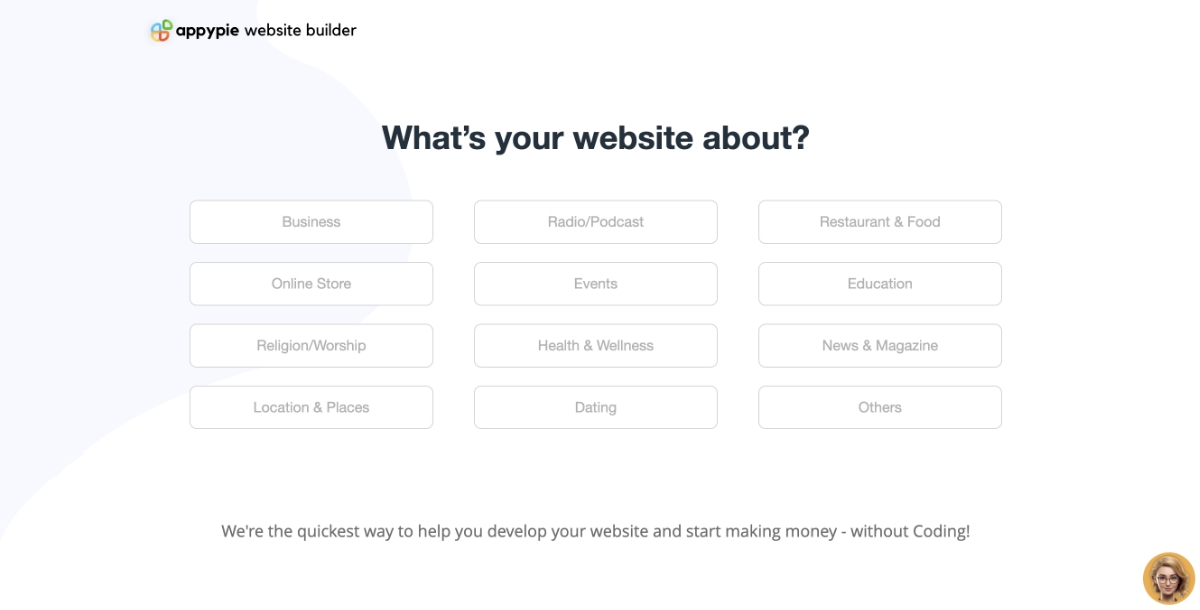
Step 4: Choose your style: You will now be directed to a page where you can select the style that suits your business from the various light and dark options available.
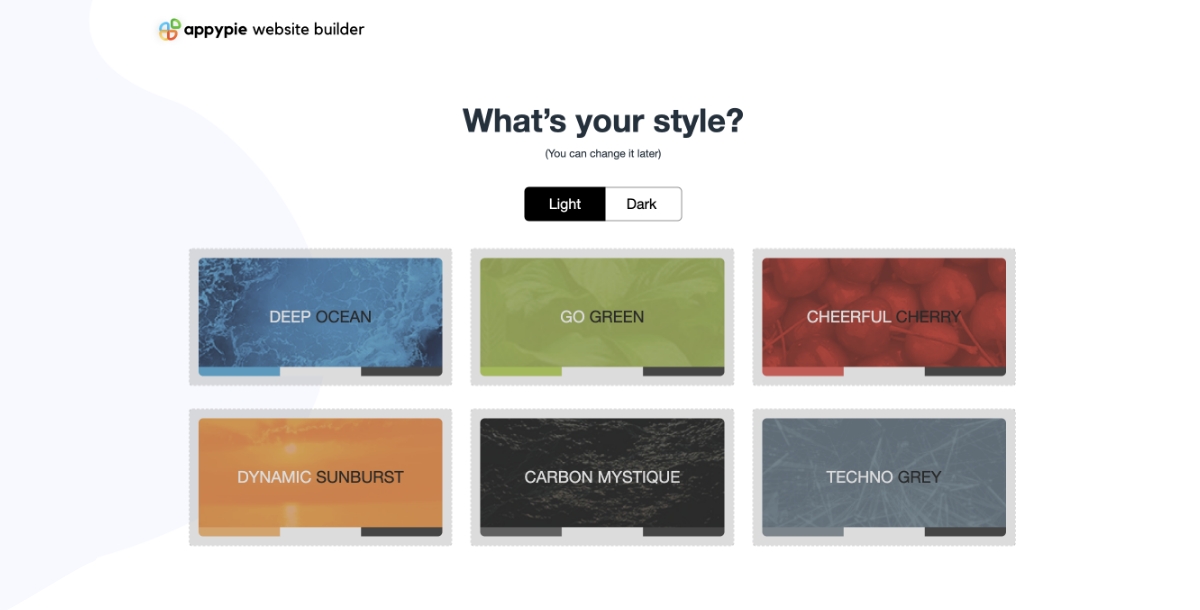
Step 5: Select - Get your Website: After selecting your style, you’ll be directed to the app builder dashboard, where you have the options for the website, domain, business email and AI chatbot. As we are building a website, select ‘Get your Website’.
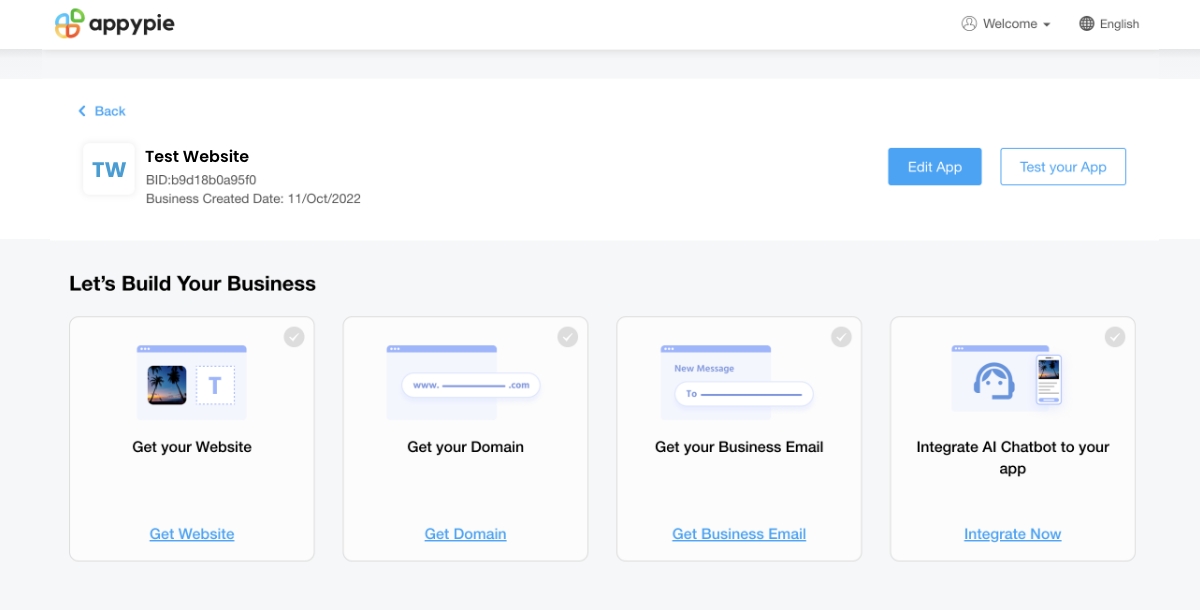
Step 6: Edit the Content: Next, you will be redirected to the ‘Add Features’ section, you can now edit the content for your website.
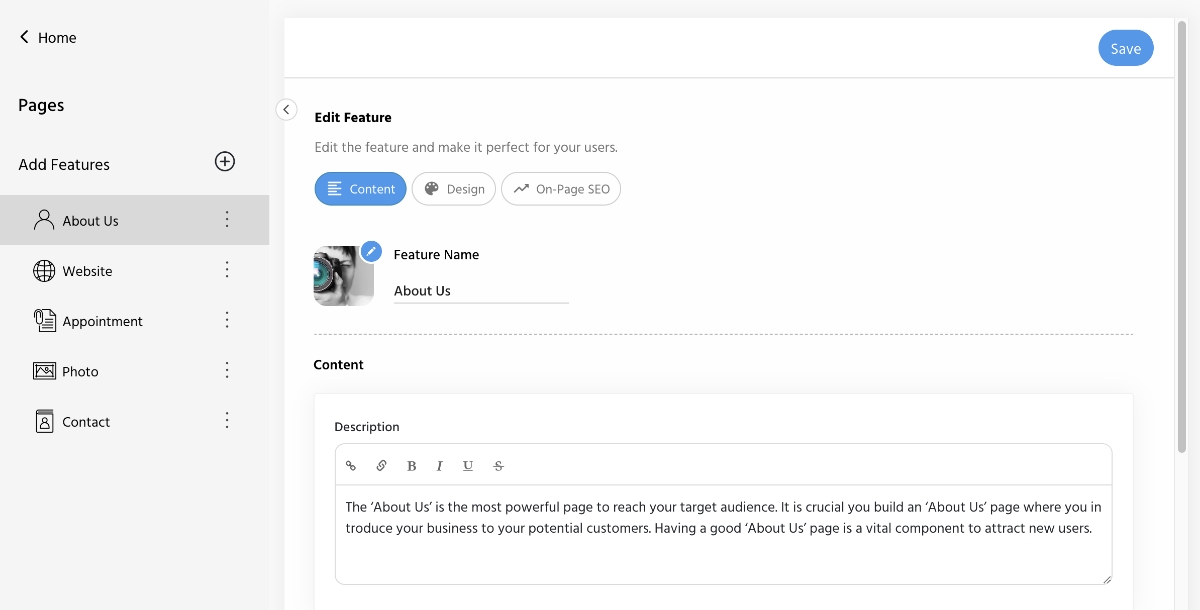
Step 7: Save the Information: After adding the content, simply click ‘Save’ and then go back to home to make more edits as per your needs.
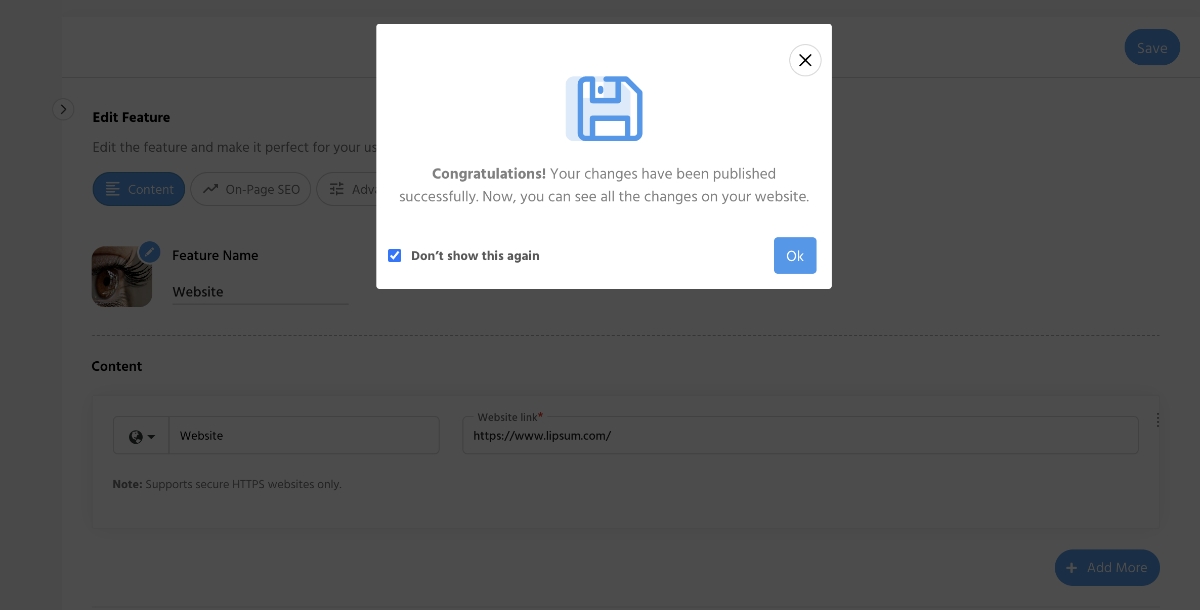
Step 8: Design & Customization: Click on ‘Design’ to create the templates and design for your website.
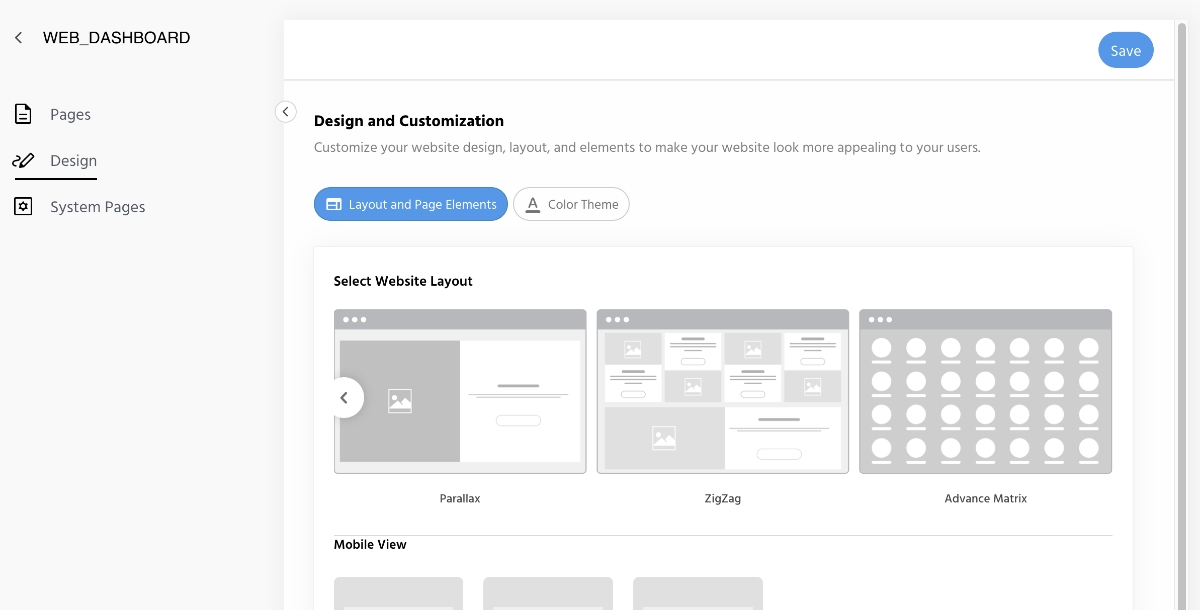
Step 9: Manage system pages: Manage login/signup settings, language settings and terms & privacy policies here.
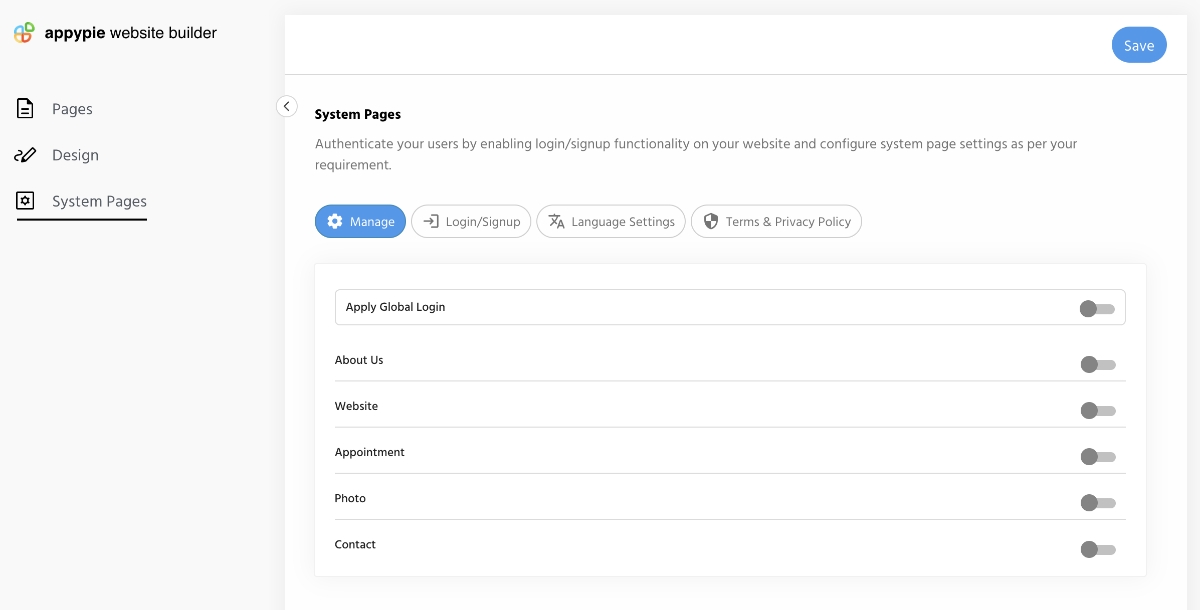
Step 10: Preview & Publish: Move to the website dashboard and click “Preview Website” to view your website. And then publish if you are satisfied with the content.
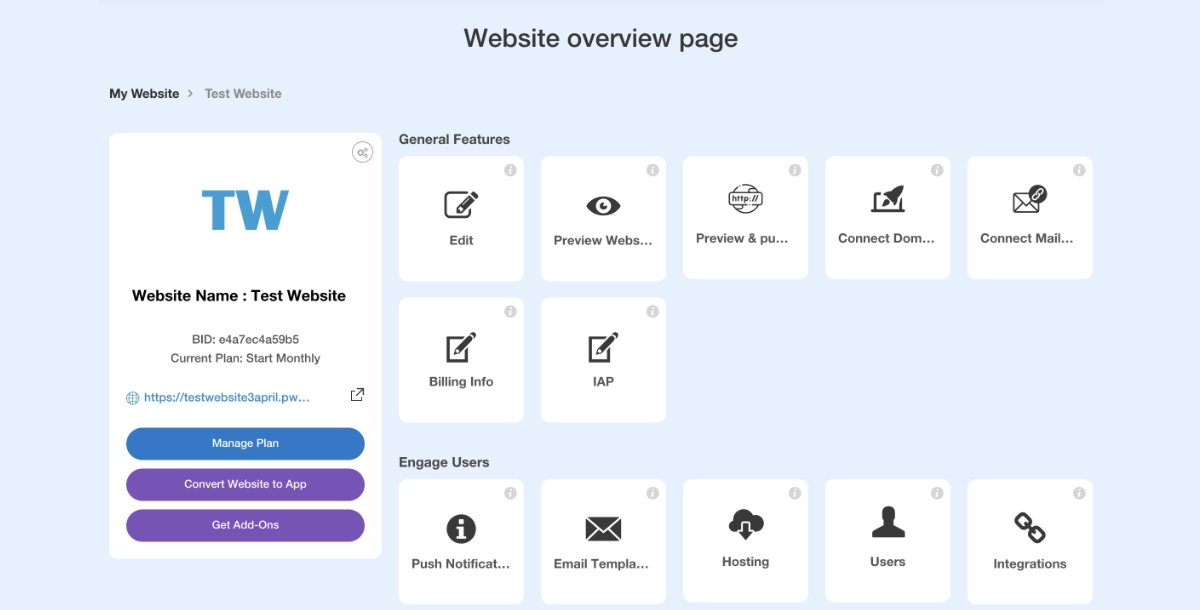
By following these steps, you can create a professional and effective branded website that showcases your expertise and attracts clients to your business. So, hire Appy Pie Experts to create your website.
The Importance of Website Branding
A branded website serves as the cornerstone of your digital presence, offering more than just basic information about your business. It's the platform where your brand's personality shines, captivating visitors and converting them into loyal customers. Below are key points that highlight the importance and components of a well-branded website:
- First Impressions Matter: Your website is often the first point of contact with potential customers. A strong visual identity and coherent branding ensure a positive and lasting first impression.
- Consistency is Key: From colors and fonts to the tone of voice, every element on your website should be consistent with your brand's identity, reinforcing brand recognition.
- Engagement Through Storytelling: A branded website uses compelling narratives to connect with its audience, effectively communicating the brand's values, mission, and what sets it apart.
- User Experience (UX) Design: Prioritizing a seamless, intuitive user experience aligns with your brand's commitment to customer satisfaction and service quality.
- Content Strategy: Quality, branded content not only boosts SEO but also establishes your brand as a thought leader in its industry, building trust with your audience.
- Visual Elements: High-quality images, videos, and graphics that align with your brand identity enhance engagement and convey your message more effectively.
- Call to Action (CTA): Clear, branded CTAs guide users towards taking the desired action, whether it's subscribing to a newsletter, making a purchase, or contacting your team.
- Mobile Optimization: With the increasing use of smartphones for web browsing, a mobile-responsive design is crucial for a positive brand experience. Social Proof: Testimonials, case studies, and reviews showcased on your website lend credibility and foster trust in your brand.
- Continuous Improvement: Regularly updating and refining your website based on user feedback and analytics ensures that your brand remains relevant and engaging.
Additionally, you may use online website templates to help you focus on many of the components discussed above, and make your website more than just an online presence, evolving into a dynamic space that fosters meaningful connections and nurtures customer relationships.
Key Tips for Crafting a Branded Website
Creating a branded website involves several critical steps, each contributing to the overall feel and effectiveness of your online brand presence.
- Identify Your Brand Essence: Start by utilizing a website builder to establish the foundation of your website. This tool allows you to infuse every digital corner with your brand’s mission, values, personality, and key messages, ensuring your brand identity is vividly reflected throughout your site.
- Select a Domain Name That Resonates: Your domain name serves as your online identity. Choose a domain name that is not only memorable but also encapsulates your brand essence, making it easier for customers to find and remember you.
- Opt for Reliable Website Hosting: Selecting reliable website hosting is critical for ensuring that your website remains accessible and provides a smooth user experience, reflecting your brand’s commitment to quality and reliability.
- Leverage a Free Domain for Startups: If budget constraints are a concern, consider starting with a free domain. This can be an excellent way to launch your branded website without initial investment, while still securing a domain name that aligns with your brand.
- Utilize Templates as a Starting Point: Explore website templates that align with your brand's aesthetic. These templates, designed by professional website designers, can serve as a canvas for your brand's unique color palette, typography, and overall style.
- Choose Colors and Typography Wisely: Dive into the color palette and typography options provided by your website builder. Select colors and fonts that convey your brand's personality, ensuring they harmonize to evoke the intended emotions and values.
- Design a Logo with Impact: Work with a website designer or leverage design tools within your website builder to create a logo that’s simple, memorable, and adaptable across various platforms, reinforcing your brand identity on your website and beyond.
- Create Content That Engages: Use the content management features of your website builder to craft engaging, brand-aligned content. This content should resonate with your target audience, addressing their needs and sparking interest.
- Prioritize User Experience: Utilize the customization options in your website builder to enhance navigation and ensure fast loading times. A user-friendly website underlines your brand's focus on customer satisfaction and professionalism.
- Showcase Your Brand Through Visuals: Incorporate visuals, whether sourced or created using tools within your website builder that mirror your brand identity. High-quality images, videos, and graphics should not only be visually appealing but should also complement the narrative you wish to convey.
- Maintain Brand Consistency: Use the cohesive design features of your website builder to apply your brand elements consistently across all pages. From the homepage to the contact page, every element should seamlessly represent your brand, ensuring a uniform brand experience for your visitors.
Leading Website Branding Examples
Several websites stand out for their exceptional use of branding. These sites not only capture the essence of their respective brands but also offer a seamless and engaging user experience.
- Apple
- Airbnb
- Nike
- Spotify
- Tesla
Known for its minimalist design, Apple’s website mirrors the sleek, innovative nature of its products. The use of white space, clean typography, and high-quality product visuals exemplifies Apple's brand identity.
Airbnb’s website does an excellent job of conveying a sense of adventure and community. With engaging storytelling, user-generated content, and a warm, welcoming color scheme, Airbnb’s site invites users to explore the world.
Nike’s website is dynamic and motivational, featuring bold visuals and inspirational content that resonate with its target audience. The site’s design and messaging reinforce Nike’s brand identity as empowering and performance-focused.
Spotify’s website uses vibrant colors, playful graphics, and personalized content to reflect its brand personality as innovative and user-centric. The site provides an immersive experience, showcasing Spotify’s service as more than just a music platform.
Tesla’s website showcases its commitment to innovation and sustainability. The clean, futuristic design paired with impactful imagery and concise, persuasive content aligns perfectly with Tesla’s mission to revolutionize transportation.
Conclusion
Website branding is a critical component of your digital marketing strategy, encapsulating your brand identity in a way that resonates with your audience. The essence of effective website branding lies in its ability to convey your brand's unique message and identity cohesively across all digital touchpoints. Leveraging tools like Appy Pie experts can significantly streamline the process of creating a branded website that truly stands out. This platform offers invaluable resources for businesses aiming to excel in selling online, providing an intuitive online store builder that simplifies the website creation process.
Moreover, by incorporating student discounts into your strategy, you can attract a younger demographic, enhancing your site's appeal and broadening your customer base. This approach not only capitalizes on the burgeoning market of tech-savvy youths but also fosters brand loyalty among a demographic that values affordability and accessibility in online shopping experiences. Remember, your website is often the first point of contact with potential customers, making it imperative to leave a lasting, positive impression.
Related Articles
- Starting Your Etsy Shop: A Comprehensive Guide to Launching a Successful Etsy Business
- Why The Future Of Chatbots Is No-code?
- How to Make Money with Best Online Earning Websites of 2023
- How CHATBOTS Can Help You Improve SALES & CUSTOMER SERVICE?
- The Ultimate Guide to Website Maintenance: Boost Performance and Reduce Costs
- What’s a BPO call center and what does it do?
- The 5 Best Marketing Apps for Business and Professionals
- Q4 Ecommerce Strategy: Tips to Get Your Business Ready for Q4
- How to Schedule Messages in Slack to Boost Productivity
- Virtual Currency [Definition, Pros, Cons, and Popular Cryptocurrencies]
